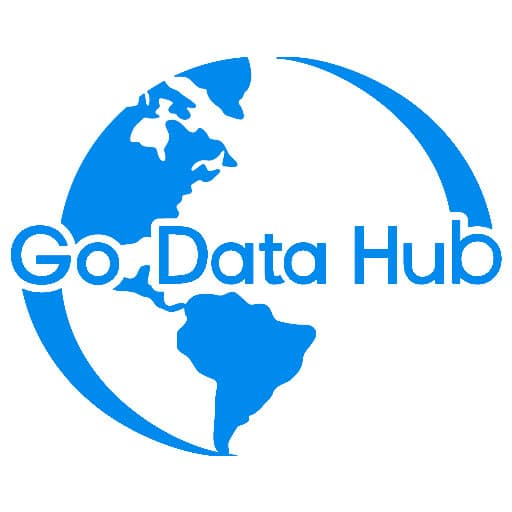Building vs Buying CRM Software – 2024 Guide
What is CRM Software and Why it’s Essential for Businesses
Customer Relationship Management (CRM) software acts as the backbone for companies hungry for customer satisfaction and retention. It’s a digital sherpa for customer data navigation, easing the journey from lead to client. A CRM is tasked with organizing, analyzing, and managing customer information—all in one place. Here’s why:
- Sales teams use CRM to track deals, visualize pipelines, and understand wins and losses.
- Customer support relies on CRM systems to solve issues efficiently, logging every interaction to ensure no customer feels left behind.
- Marketing departments automate campaigns and analyze reactions to tweak their strategies for maximum impact.
With a CRM, you’re not just shooting in the dark. Businesses see tangible benefits: teams sync up, productivity shoots up, and customers feel truly valued. In the long-term game, CRM is your move for a checkmate against inefficiency and customer churn.
Table of contents:
- What is CRM Software and Why it’s Essential for Businesses
- Building Your Own CRM
- Typical Challenges When Building a Custom CRM
- Can Buying Off-the-Shelf CRM Software Be Advantageous?
- Drawbacks You Should Consider When Buying CRM Software
- How Company Size and Requirements Influence the Decision
- What Factors Should Drive the Final Decision on CRM Software?
Getting a Custom CRM
So why should you consider getting your own custom CRM? Why can’t you get by with “off the shelf” CRMs? Here are just a few reasons:
Customization Potential: Imagine a CRM that fits your business like a glove. When you build a bespoke CRM solution, you’re not just adjusting settings; you’re creating a system designed around your specific workflow. You dictate every field, function, and feature, leading to a tool that aligns perfectly with your operational needs and objectives. This tailor-made approach can vastly improve efficiency and user adoption rates.
Fitting Unique Business Processes: No two businesses are alike, and off-the-shelf CRM software often forces companies to compromise or alter their processes to match the software’s capabilities. A custom CRM, on the other hand, bends to your will. You pinpoint your unique business processes and embed them into the software, ensuring your CRM enhances rather than hinders your team’s workflow. This approach not only captures the nuances of your operations but can scale and evolve with your business. For example, many sales-people need a workflow that is tailored around their needs and focuses on the sale. A custom sales CRM could turn into more coversions and therefore increase the company bottom line.
Long-term Ownership Advantages: Think about the future. Owning a custom CRM software outright grants you complete control over its evolution. You’re not at the mercy of a third-party vendor’s update cycle or pricing changes. Instead, you have the freedom to adapt and expand the software in line with technological advancements and shifting business strategies. Over time, although the initial investment may be significant, you can potentially save on subscription fees and gain a competitive edge through a system that continuously evolves with your needs.
Typical Challenges When Getting a Custom CRM
When you decide to go for custom CRM development, the first hurdle that looms large is the upfront development cost. Picture this: hiring developers, procuring tools, and allocating funds, all of which can substantially strain your initial budget. Plus, you’re not just allocating money but also your team’s time and effort. It’s like pre-paying for a service with no immediate returns. That’s why it’s good to go with an expert like GoDataHub who specializes in building custom CRMs.
Next up are the technical challenges. Building a CRM isn’t a stroll in the park. It demands a team with high technical savviness. You’ll need experts deeply familiar with database architectures, user interface design, and integration with other systems. Without a skilled team, your CRM could end up as functional as a car without an engine.
It’s important to get someone like GoDataHub that not only has experience in developing software, but knows how to develop CRMs in particular. This way you can be sure you’ll get the solution you need.
Can Buying Off-the-Shelf CRM Software Be Advantageous?
When you’re eyeing efficiency and cost savings, off-the-shelf CRM software seems like a smart choice. They typically involve lower initial costs and allow you to hit the ground running, bypassing the lengthy development time custom solutions demand. Time is money, and these solutions let you save a bit of both. However, this advantage starts to fade as workflows in off-the-shelf CRMs are not finely tuned to your organization, resulting in way less productivity and mistakes that can be costly.
There’s another thing to consider with off-the-shelf CRMs: employee training and efficiency. Often such general solutions need workarounds to achieve what you need. This makes the workflow more complex, which makes it harder to get employees up and running. Training someone in convoluted workflows that fit around an off-the-shelf solution is not only problematic but it leads to less output and more mistakes.
Drawbacks You Should Consider When Buying CRM Software
When eyeing pre-built CRM solutions, customization and scalability often hit a roadblock. These off-the-shelf options may feel like a one-size-fits-all deal and could pinch when your business grows or changes direction. If your CRM can’t adapt to new processes or handle increased data, you might find yourself boxed in, struggling to tailor the software to fit your evolving needs. In other words you’ll have to make your business fit the CRM instead of the other way around.
Let’s talk about the cash drain after the initial purchase—those sneaky ongoing costs. Think licensing fees that cling to your wallet and could inflate as your team or usage expands. What starts as an affordable expense can escalate, creating a financial commitment that demands foresight and budgeting acumen. This isn’t a one-and-done deal; it’s an ongoing financial relationship with your CRM software.
Last up: vendor lock-in. Partnering with a software provider means you’re dependent on their timetable for updates and maintenance. This could lead to waiting for essential features or fixes, impacting your team’s efficiency. Unplanned outages? You’ll be at their mercy. In essence, your CRM’s well-being is tied to a third-party’s agenda, and that could spell trouble if their priorities don’t align with yours.
How Company Size and Requirements Influence the Decision
When assessing whether to build or buy CRM software, the size of your business is a game-changer. Small businesses, watch your wallets—custom solutions can be too rich for your blood. Yet large enterprises, think scale; off-the-rack CRM systems might constrain your growth. Customizable scalability is key, and your choice should mirror your ambitions without strangling your finances.
Don’t leap without looking. Spec out your current and future needs like a pro. If your specs are more detailed than a NASA launch plan, consider custom CRM—tailor-made to evolve with you. Buying off-the-shelf? Make sure it’s not like ordering a supersized meal only to waste half of it. Unnecessary bells and whistles can complicate, not simplify, your business processes.
It’s a classic case of more is not always better. Off-the-shelf software can seduce with features galore—beware of overbuying. It’s like paying for a full cable package when you only watch the news. Opt for software that matches your size and complexity or build one that can be as flexible as a gymnast, adapting to your company’s acrobatics.

What Factors Should Drive the Final Decision on CRM Software?
Aligning your decision regarding CRM software with your business’s broader objectives is crucial. Ensure that the CRM solution, whether built in-house or purchased, seamlessly integrates with your business goals, strategy, and plans for customer engagement. A CRM should not be a standalone tool but a cog in your business machine that propels forward customer satisfaction, sales, and retention rates.
Next, let’s talk money—assess the total cost of ownership (TCO). This isn’t just about the initial price tag. When building a CRM, factor in development costs, long-term maintenance, training, and potential scalability. Buying might seem cost-efficient upfront but consider subscription fees, customization, and upgrade expenses over time. We’re looking for value, not just a shiny price sticker.
Last but definitely not least, weigh in the risk, flexibility, and potential ROI. A custom-built CRM might offer tailor-made functionality, but it’s a heavier lift upfront and could come with unforeseen technical challenges. Conversely, off-the-shelf software tends to be a safer, quicker fix, but it could lack that personal fit and grow out-of-date. Will the chosen CRM adapt as your business evolves? Can it yield substantial returns through enhanced customer relationships and operational efficiency? These questions deserve careful thought before your final decision.

